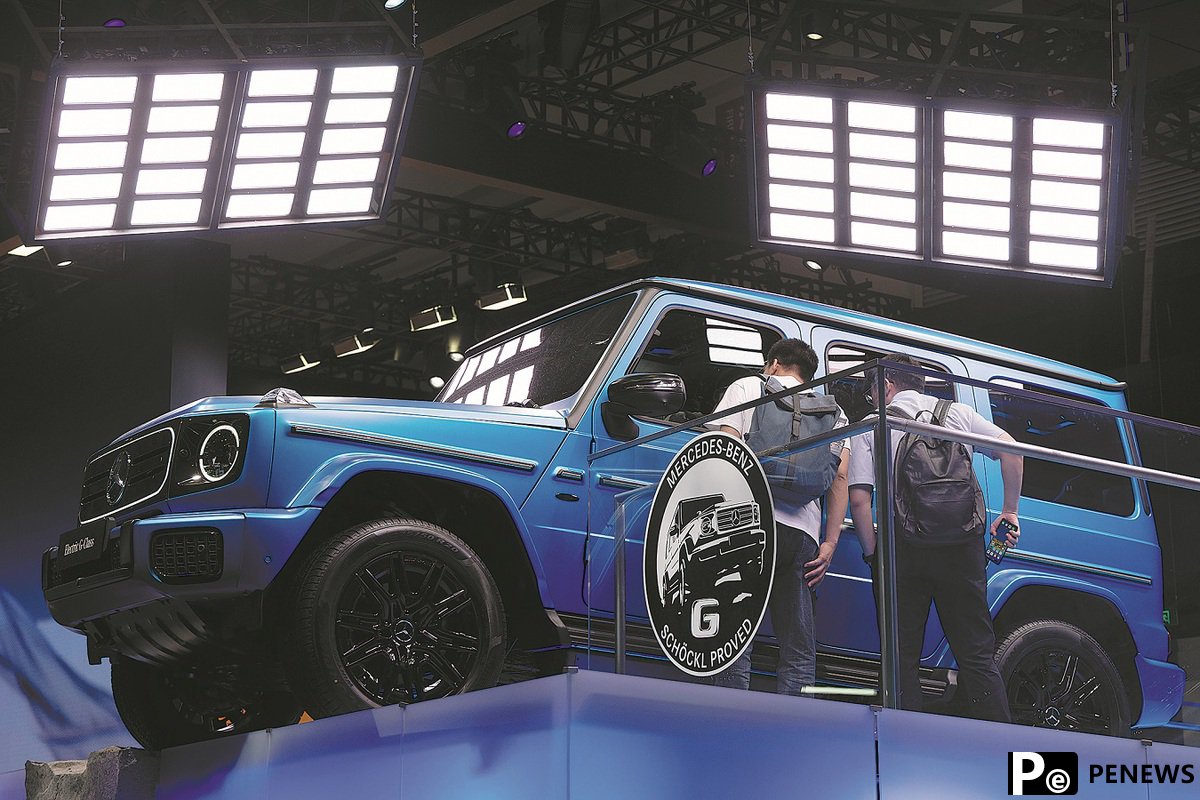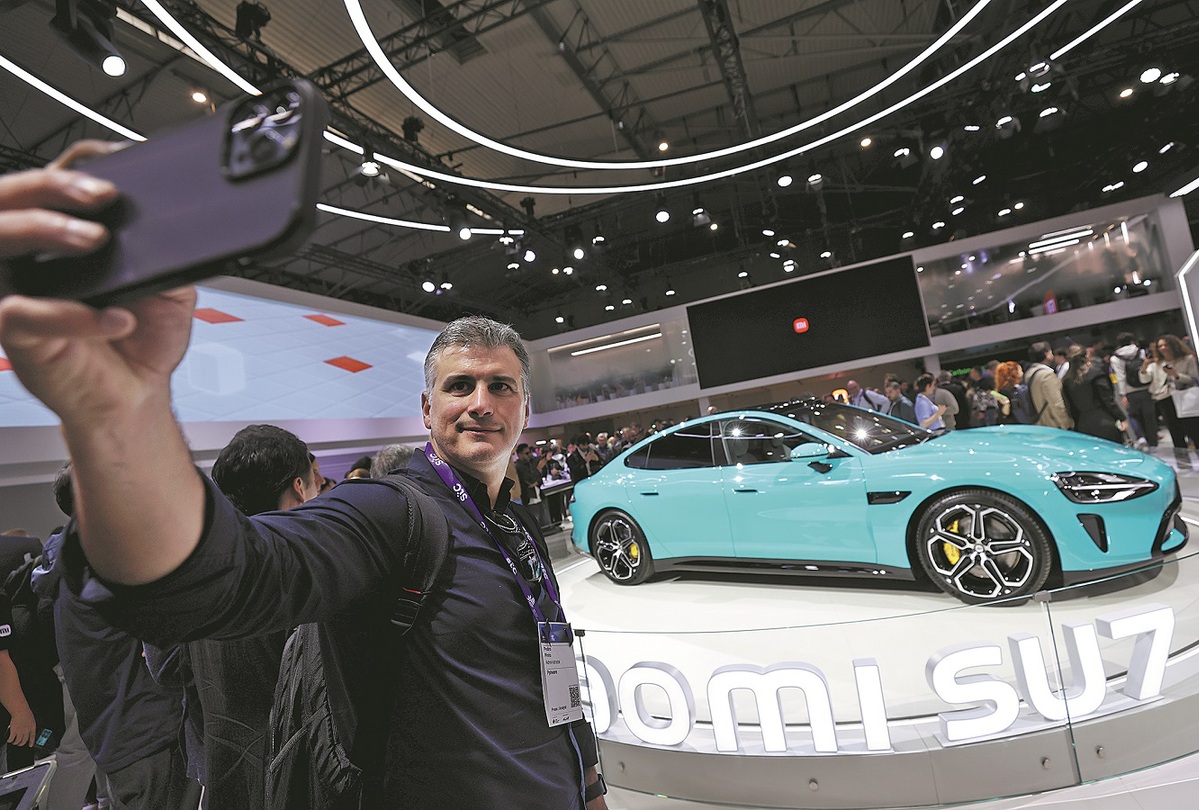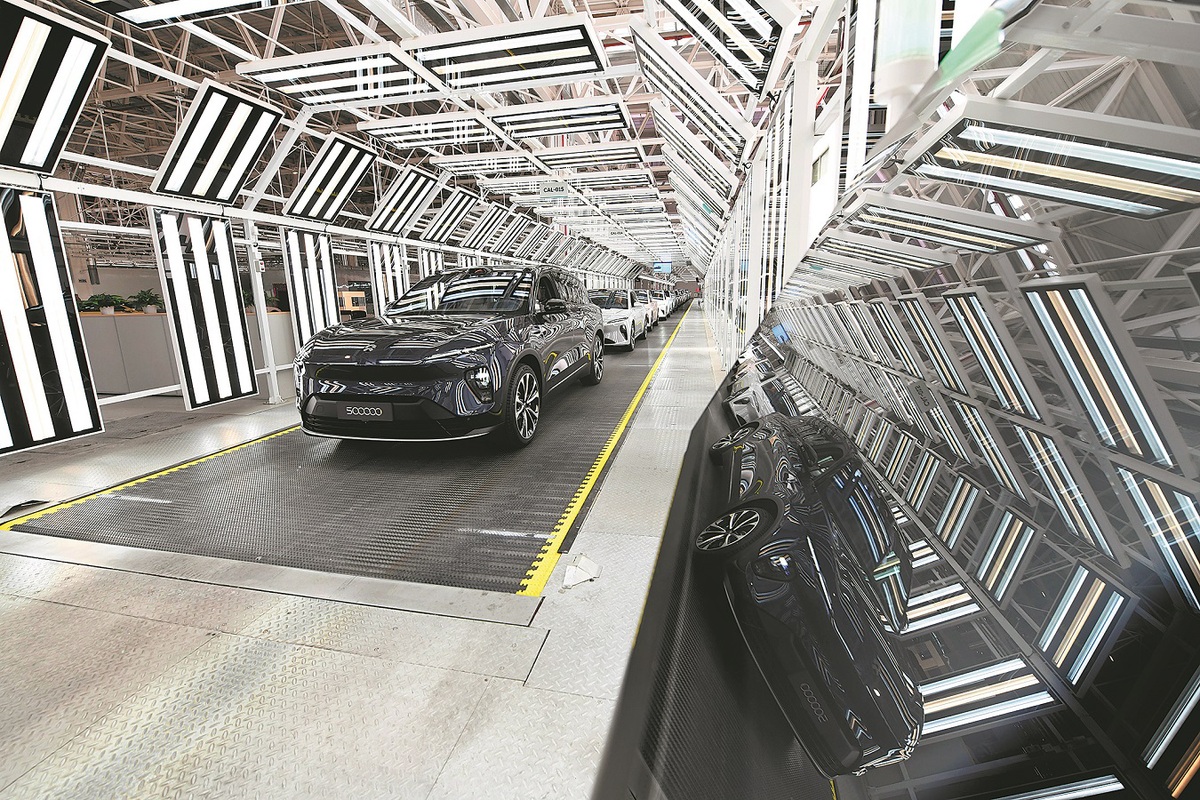Home>>
Cellphone maker Xiaomi has EV market buzzingBy Li Fusheng (China Daily) 08:44, May 23, 2024

Visitors look at a Mercedes-Benz at the 2024 Beijing International Automotive Exhibition in April. CHINA DAILY
As the newest Chinese electric vehicle maker, Xiaomi Corp has generated a buzz rarely seen in the history of the country's automotive sector, with both huge excitement and some controversy.
The launch in late March of its first model, the SU7 sports sedan, attracted more than 40 million views on Sina Weibo, online exposure other carmakers only dream about achieving.
Weeks before the event, guessing the sedan's price range had been a trending topic on China's social media platforms.
The curiosity is understandable. The model is the first vehicle from any big phone manufacturer — Apple has canceled its car-making plans and Huawei insists that it does not make vehicles, although it sells smart driving solutions.
The venture also has an aura of mystery. Xiaomi's CEO Lei Jun called the car project his final entrepreneurial venture, and the crowning of his extremely successful business career.
At an event three months ahead of the model's launch, Lei promised it would be a "dream car" to rival Tesla and Porsche.
Though priced at around one-fourth of Porsche's electric Taycan, which it resembles, the SU7, with the base model retailing for 215,900 yuan ($29,840), does have some eye-catching features. These include good acceleration, a minimum range of 700 kilometers, as well as an operating system that allows other Xiaomi products to work seamlessly with the car.

A visitor takes a selfie with Xiaomi's SU7 displayed at the Mobile World Congress 2024 in Barcelona, Spain, in February. GAO JING/XINHUA
Master marketer
But the excitement around the project would not have been possible without Lei, a marketing master who knows full well the power of social media.
Lei has verbal skills rarely displayed by other high-profile business leaders in China. Both Zhou Hongyi, CEO of network security company 360, and Liu Qiangdong, founder and chairman of online shopping giant JD, admit they cannot rival Lei when it comes to delivering a message.
In one of his videos posted on Sina Weibo ahead of the model's launch, Lei showcases the plant's paint workshop, saying: "Isn't it beautiful, our mirror-like paint finish?"
Such videos usually have millions of views on Sina Weibo, where Lei has more than 20 million followers.
Getting a thumbs-up for the post has little to do with the actual painting process, but the video is clever enough to allow potential buyers the rare opportunity of seeing inside a paint workshop.
Such good impressions give Xiaomi an advantage over its rivals when it comes to potential car buyers.
The SU7's features, coupled with Lei's marketing skills, have driven strong early demand for the model. Xiaomi said it received over 88,000 orders with a deposit of 5,000 yuan, within 24 hours of the launch.
In late April, Lei said at the company's shareholder meeting that the model's fully paid orders numbered over 70,000, and the company's goal is to deliver 100,000 units this year. In the first full sales month of April, 7,058 units were delivered. It was a decent number, allowing Xiaomi to outperform electric vehicle makers Avatr and Voyah, both of which were established in 2018.
Xiaomi's sales fell just 2,300 units short of competitor Xpeng's deliveries in April. Known for its edge in smart driving, Xpeng has six models in the market and has been chosen by Volkswagen to codevelop vehicles.

Chinese EV maker Nio's 500,000th vehicle rolls off the production line in Hefei, Anhui province, on May 9. ZHANG DUAN/XINHUA
Teething problems
However, the SU7 has encountered some teething problems as well as criticism.
One viral video showed a vehicle breaking down within minutes of it being delivered to its owner in Fujian province. Another showed a vehicle in Hunan province suffering brake failure after one month's use, which Xiaomi put down to a rare "software misdirection" that had been solved.
Such problems happen with other brands, but analysts said they could cool customers' enthusiasm for the SU7 as many of those first-time vehicle buyers are longtime customers of Xiaomi products.
The company's efforts to highlight differences between the SU7 and its competitors could also backfire, critics said. At the launch event, Lei gave a detailed list comparing the SU7 with Tesla's Model 3, a practice which is not an industry norm.
He expounded on what he called "novelties" to show Xiaomi's consideration for its customers, such as space for an umbrella, and a phone holder to aid navigation. However, many of Xiaomi's rivals do not see the need for a phone holder as navigation functions are integrated into the central display unit of their vehicles.
Despite this, Lei gave little information about the performance areas where the model was said to excel, such as smart driving, although he declared Xiaomi would be among the "top-class players".










